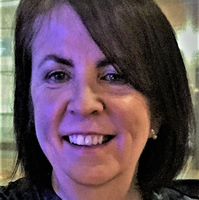Event
Lewy Body MasterClass
Location:
Clayton Hotel Belfast
22 Ormeau Avenue
Belfast
BT2 8HS
There is an urgent need to address the gap in awareness and clinical skills around the diagnosis and management of LBD by clinicians in the UK and Ireland.
→ Find out more about Lewy body dementia (LBD) and Parkinson’s disease dementia (PDD)
This MasterClass aims to address this gap by providing intense practical education regarding the diagnosis and practical management of LBD/PDD among clinicians in the UK and Ireland, leaning on the latest evidence regarding biomarkers and interventions. The MasterClass will also form the basis of developing a network of LBD-skilled clinicians across the UK and Ireland, able to lead improvements in diagnosis, management, and care.
Who is the course for?
Clinicians working with older adults at risk of or living with dementia (geriatricians, old age psychiatrists, neurologists, palliative care physicians, clinical nurse specialists, senior trainees and allied health professionals)
From this course, delegates will gain:
An introduction to the clinical syndrome of LBD/PDD, its epidemiology and risk factors
An understanding of the clinical aspects of diagnosis of people at different stages of these dementias, with a focus on different presentations (motor, cognitive, behavioural, other)
Case-based discussions of different clinical presentations, including diagnostic challenges, with a focus on the DIAMOND LEWY toolkit
An introduction to assessment tools for cognitive, functional, and behavioural impairment for LBD/PDD
An introduction to treatment and management of LBD/PDD (pharmacological and non-pharmacological)
Discussions of care pathway planning for people living with dementia, including information and support for family carers
An understanding of community support and third sector services.
CPD accreditation
Costs and accommodation
The MasterClass will cost £450 (incl. VAT), which includes all meeting materials, meals and accommodation for 1 night at the venue. Delegates are responsible for their own travel costs.
For delegates who are living in Belfast and the surrounding areas who do not require accommodation, this can be deducted from the course fee. Please note you would still be expected to attend the formal dinner on the 4th November.
This MasterClass is now fully booked. Please register your interest for our next Lewy Body MasterClass.

This event has been supported by an educational grant from the Lewy Body Society and is delivered in collaboration with Lewy Body Ireland.
Speakers
 Prof Iracema Leroi
Prof Iracema LeroiProfessor in geriatric psychiatry, Trinity College Dublin & Faculty, GBHI
 Dr Sean O’Dowd
Dr Sean O’DowdConsultant neurologist, Tallaght University Hospital, Dublin
 Prof Dag Aarsland
Prof Dag AarslandProfessor and head of department of old age psychiatry, Institute of Psychiatry, Psychology, Neuroscience at King’s College London
 Prof John O’Brien
Prof John O’BrienProfessor of old age psychiatry and NIHR national specialty lead for dementia, Department of Psychiatry, University of Cambridge
 Rachel Thompson
Rachel ThompsonConsultant admiral nurse for Lewy body dementia, Dementia UK
 Prof Bernadette McGuinness
Prof Bernadette McGuinnessProfessor of geriatric medicine and consultant geriatrician, Queen’s University Belfast, Belfast Health & Social Trust
 Dr Paul Donaghy
Dr Paul DonaghyMRC clinician scientist fellow and consultant old age psychiatrist, Newcastle University and Gateshead Health NHS Foundation Trust
 Prof John-Paul Taylor
Prof John-Paul TaylorProfessor of Translational Dementia Research and Honorary Consultant Old Age Psychiatrist, Newcastle University
 Karen Meenan
Karen MeenanAtlantic Senior Fellow for Equity in Brain Health, Global Brain Health Institute
 Jacqui Cannon
Jacqui CannonChief executive, The Lewy Body Society
 Dr Joseph Kane
Dr Joseph KaneAcademic clinical lecturer, Queen’s University Belfast
 Helen Bundy Medsger
Helen Bundy MedsgerLBD Peer Mentor, Support Group Facilitator and Support Services Volunteer, Lewy Body Dementia Association
 Les Magee
Les MageeMusician and Ambassador for the Lewy Body Society
Lewy Body Academy
Focussing on dementia with Lewy bodies (previously known as Lewy body disease), and Parkinson's disease dementia, this specialist training ensures people with these dementias do not fall through the gaps in care.

